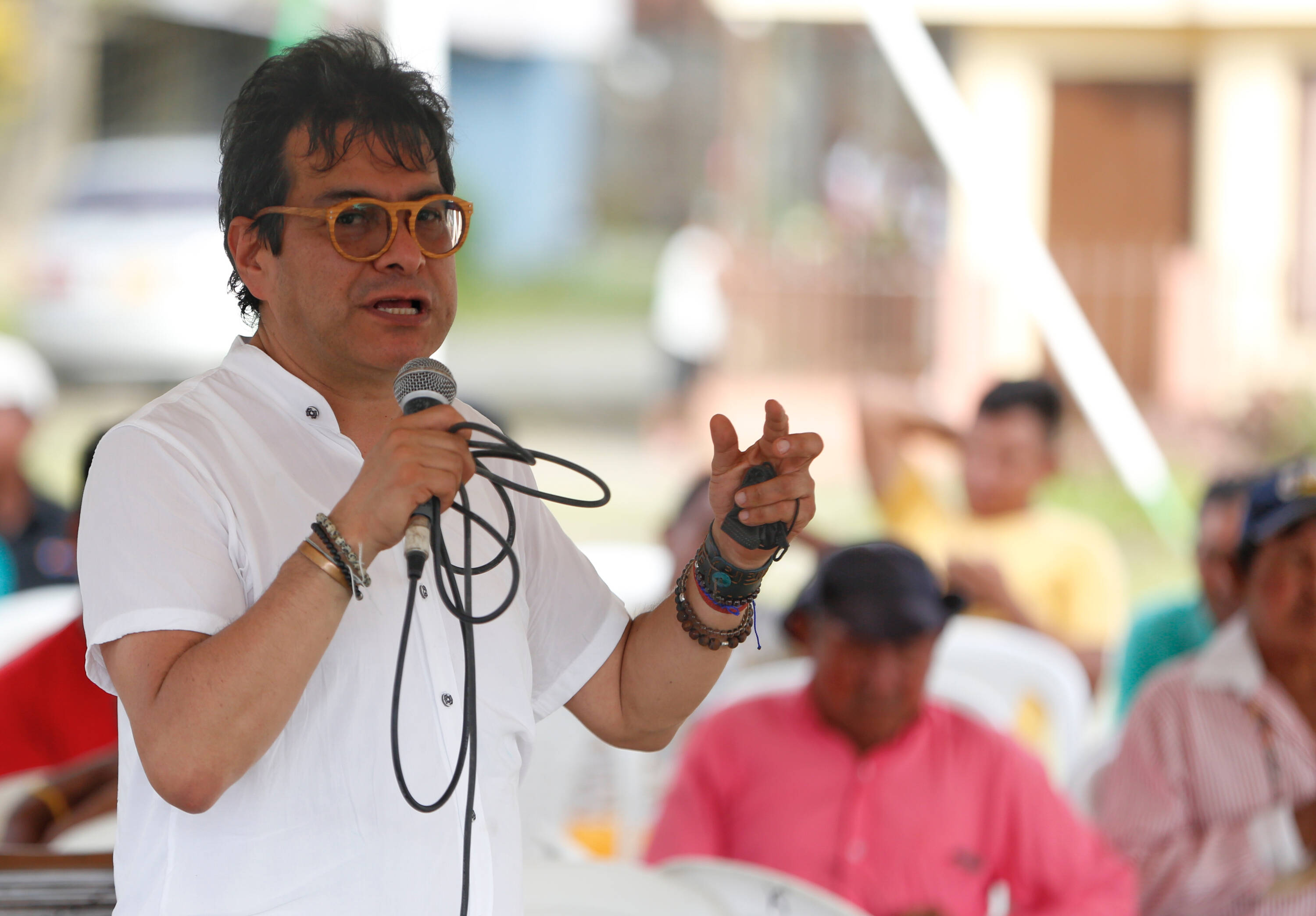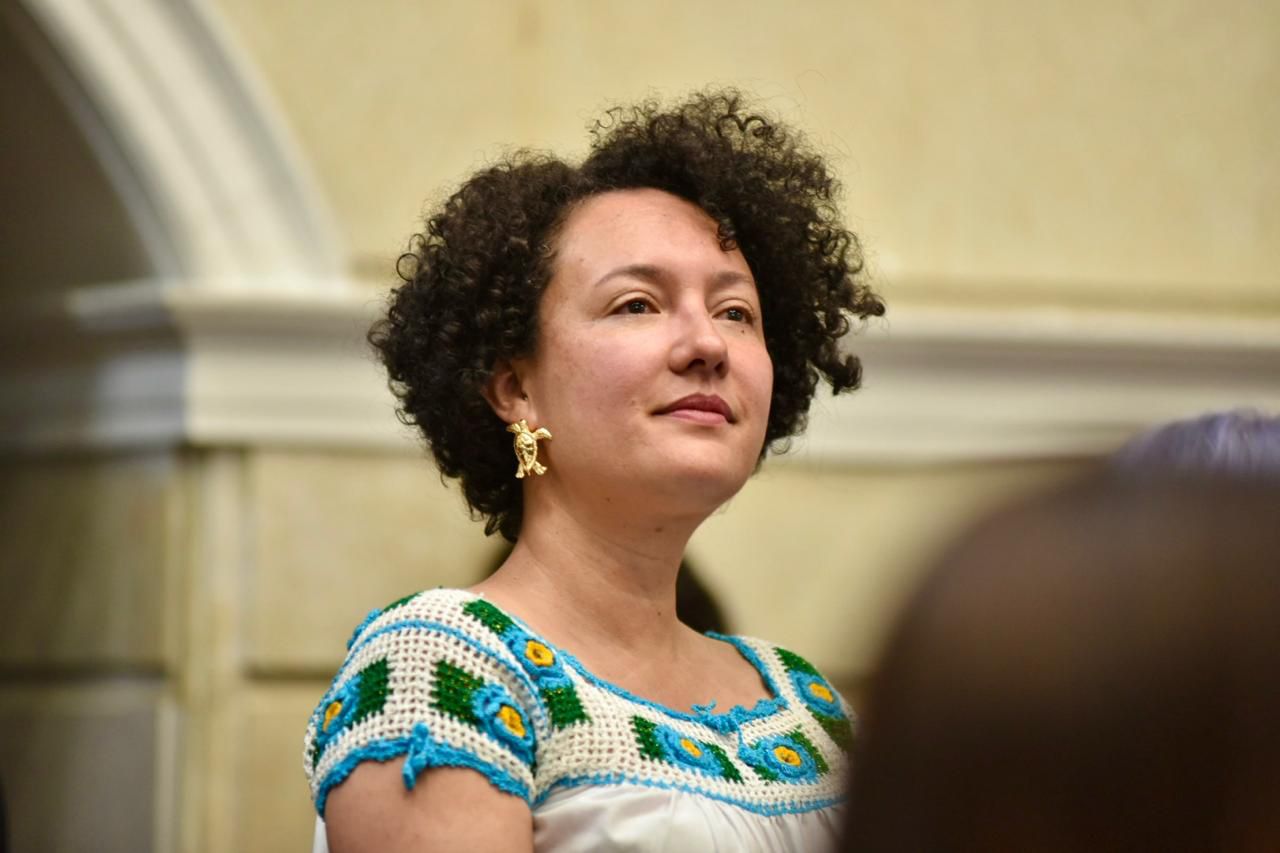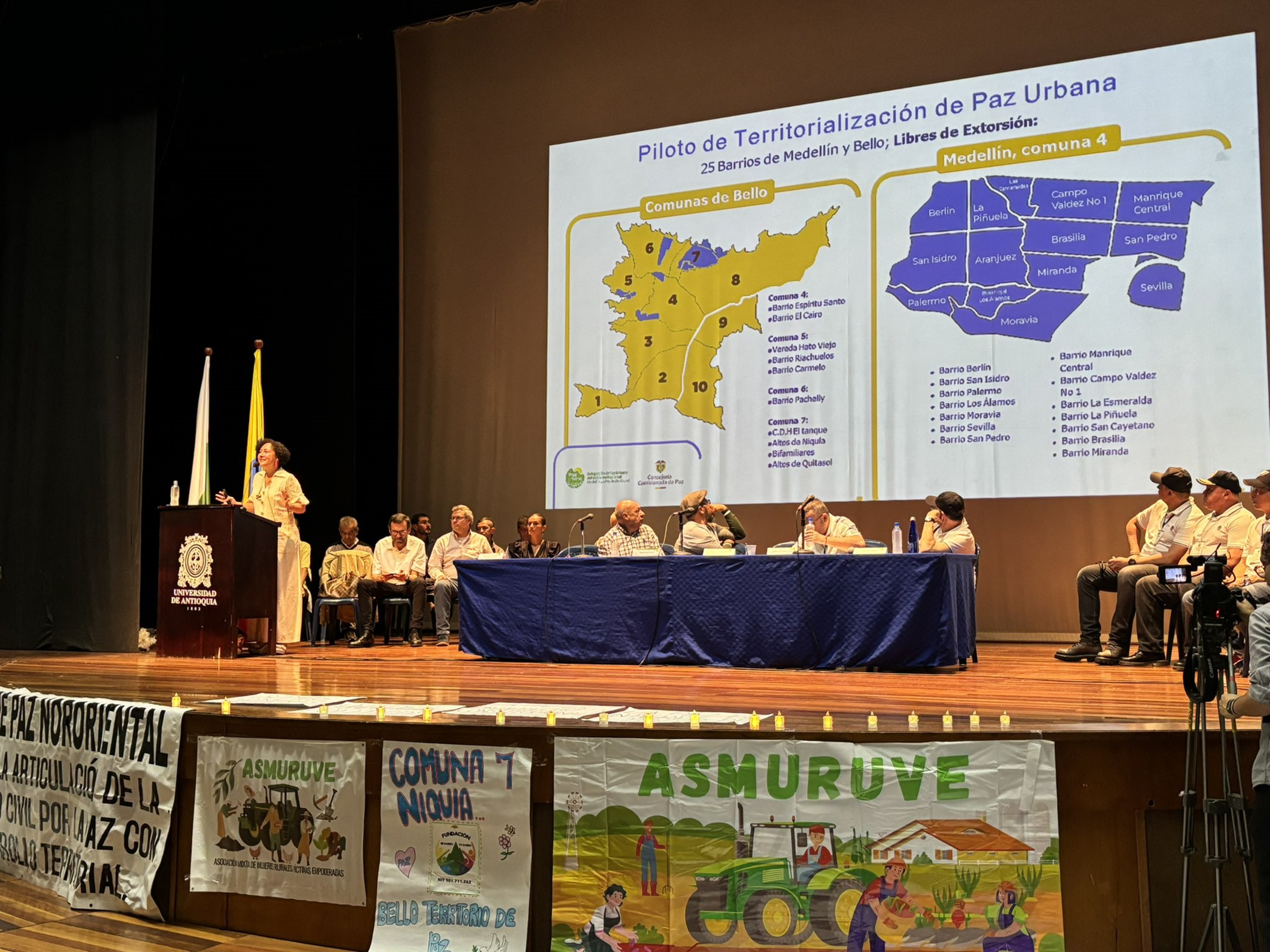How did Medellín's gang leaders go from jail cells to sharing the stage with President Petro?

The image of President Gustavo Petro on the platform installed by the government in Plaza La Alpujarra in Medellín, surrounded by his cabinet and the leaders of the city's main criminal gangs, not only provoked the indignation of the authorities of Antioquia - who interpreted the gesture as a direct challenge to their power - but also raised a fundamental question: how was it possible that these bosses, several of them sentenced to long prison terms for their role in the violence plaguing Medellín, went from their cells to sharing the stage with the head of state?
To understand how we got to this point, we must go back several months. The formal installation of the roundtable—referred to by the government as a "socio-legal discussion space"—took place on June 2, 2023, at La Paz prison in Itagüí.
However, the process had begun long before. In August 2022, one day before Gustavo Petro assumed the Presidency, the criminal organization known as "La Oficina" sent a letter to the new government expressing its intention to join the "total peace" policy. Shortly after, "Los Pachelly" joined the request through a document, while a truce was also announced between the main organized crime groups in the Aburrá Valley.
In April 2023, the then High Commissioner for Peace, Danilo Rueda, announced that, after a phase of rapprochement with the leaders of 12 criminal organizations, a dialogue table would begin in May. However, the process was postponed because it was necessary to transfer all the leaders held in other penitentiaries to La Paz prison in Itagüí, designated as the venue for the dialogue.

Danilo Rueda, former peace commissioner, was the one who initiated this process. Photo: EFE
Finally, on June 2, 2023, the dialogue table was formally established with an event at La Paz prison. The process was led by Jorge Iván Mejía, former Secretary of Government of Medellín and designated coordinator of the space, and Senator Isabel Zuleta. This table was the first of three planned within the framework of "urban peace," a strategy linked to "total peace" but aimed at addressing the dynamics of violence in urban contexts such as Medellín, Buenaventura, and Quibdó.
On the side of the criminal structures—which, according to the government, represent 90% of common crime in the Aburrá Valley—figures such as Juan Carlos Mesa, alias Tom, and Freyner Ramírez García, alias Carlos Pesebre, leaders of "La Oficina"; Gustavo Adolfo Pérez Peña and Jorge de Jesús Vallejo, of "Los Mesa"; Sebastián Murillo, alias Lindolfo, of "Los Caicedo"; Albert Acevedo, of "Los Pachelly"; and Juan Camilo Rendón, of "La Terraza," among others, participated.
The first formal meetings took place in August 2023 and focused on building trust between the parties. Soon, however, doubts emerged about the legal framework that would allow the subjugation of members of these organizations, a key issue for the bosses, but one that remains unresolved due to the lack of a law clearly defining the procedure.
The situation became even more tense when Federico Gutiérrez, then mayoral candidate for Medellín, denounced in August of that year an alleged plot to assassinate him, allegedly orchestrated by members of the gangs in the process of dialogue. The departure of Danilo Rueda and the appointment of Otty Patiño as the new peace commissioner in December, along with the change of local government in January 2024, left the process in limbo.
The cracks became more evident on January 24, 2024. In a meeting between the already sworn-in mayor Federico Gutiérrez, Otty Patiño, the governor of Antioquia Andrés Julián Rendón, and the then Minister of Defense, Iván Velásquez, the local leader made his position clear: there would be no dialogue from his administration with the leaders of the criminal structures.
There are up to four releases from prison After months of silence, in October 2024 the government presented the roadmap for the urban peace process. It proposed centering the dialogue on civil society participation and addressed issues such as identifying forms of urban violence, truth-telling for reconciliation, non-repetition, promoting new economies, and dismantling illegal armed groups.
The first major agreement was signed in December of that year in the San Francisco neighborhood of Itagüí. There, the armed groups agreed to de-escalate violence, including a halt to extortion in 25 neighborhoods between December 19 and January 19. This agreement was extended to June 21.

Isabel Zuleta, senator of the Historic Pact and the government's main spokesperson in this space. Photo: @ISAZULETA
As in the recent event in La Alpujarra, several of the ringleaders were transported from prison to the event and took their places on the main stage. In fact, some of them had already attended a hearing in Congress in September 2024 on the update of Conpes 4031, related to the Victims' Law.
In February 2025, during the presentation of the pilot plan's progress report, the leaders once again shared the stage with the government delegation and the Eosap observation team, which has monitored the process. According to information that has emerged regarding these prison releases, the permits for these transfers were requested by the Office of the Peace Commissioner to the National Institute of Penitentiary and were carried out under strict security measures.
"The president has never sacrificed the rule of law to achieve this," Armando Benedetti asserted in defense of the process. "If we're going to make peace, we have to make it with the criminals," he added, comparing the situation to the transitional justice rules applied to paramilitaries and guerrillas.
However, the criticism hasn't stopped. Mayor Federico Gutiérrez denounced the ringleaders' continued crime: "Petro put a tombstone on us. He released the worst criminals from prison and rewarded them with a platform at his side," he stated in a video released after the event.
The debate on submission Although the Total Peace Law allows for negotiations, the major obstacle remains the lack of a specific legal framework for subjugation. Attorney Juan Carlos Villamizar, the drug lords' defense attorney, confirmed that they expect the government to present a proposal soon.
In this context, it is worth remembering that the Constitutional Court, in ruling C-525 of 2023, declared it unconstitutional for the Government to unilaterally define the terms of submission, stating that these must be established by a law of Congress.
This legal vacuum becomes even more relevant considering the magnitude of the phenomenon. According to the report "Radiografía de los procesos de diálogo de paz en Colombia entre 2022 y 2025" (X-ray of the peace dialogue processes in Colombia between 2022 and 2025 ), prepared by Vivamos Humanos and the Fundación Paz y Reconciliación (Pares), these criminal structures have between 12,000 and 14,000 members. Their leaders—mostly heirs of the feared Don Berna, who resigned from his role as peacemaker this month—exert control through targeted violence, systematic extortion, and practices of state substitution in working-class neighborhoods.
Despite this context, during the event in La Alpujarra, President Petro promised legal benefits in exchange for the cessation of criminal activity. As El Tiempo revealed, the government is working on a draft of the Submission Law 2.0 that would be presented in the next legislative session; however, the current draft only includes benefits for indicted individuals, not for convicted individuals.

Meeting at the University of Antioquia where the report on the pilot plan against extortion was presented. Photo: Movement for Water and Life
For the latter, experts assert that a law would be necessary to allow amnesties or pardons, as occurred with former guerrillas and military personnel under the Special Jurisdiction for Peace (JEP).
Finally, at a press conference on Tuesday, Senator Zuleta affirmed that the process can continue moving forward within the current regulatory framework. However, the gap between the political will of the National Government and the resistance of local authorities such as the Mayor's Office of Medellín and the Governor's Office of Antioquia could determine the course of the process in the coming months.
CAMILO A. CASTILLOPolitical EditorX: (@camiloandres894)
eltiempo





